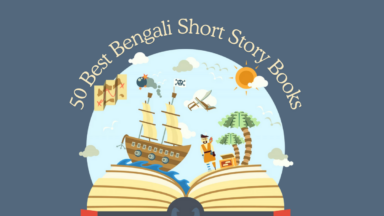
What Are Young Adults Books? Best Acknowledgements Of 2023
What Are Young Adults Books? Young adult books, also known as YA books, have gained immense popularity in recent years. These captivating stories are specifically targeted toward readers in their late teens and early twenties, offering a unique blend of relatable experiences, coming-of-age themes, and thrilling adventures.
With their compelling characters, thought-provoking plots, and relatable narratives, young adult books have become a genre that transcends age, capturing the hearts of readers of all generations. YA books not only serve as a form of entertainment but also play a crucial role in shaping the lives of young adults.
They tackle a wide variety of topics such as love, friendship, self-discovery, mental health, and societal issues, providing a safe space for readers to explore and understand themselves and the world around them. These books often address the challenges and triumphs of adolescence,
offering a sense of validation and comfort to young readers who may be navigating similar experiences. Whether you’re a teenager seeking relatable stories or an adult looking to reminisce about your own youth, young adult books have something to offer everyone. Young adult books, also known as YA books,
are specifically targeted towards readers aged 12 to 18. These books often explore themes and issues that resonate with teenagers and young adults, such as coming of age, identity, and self-discovery. They cover a wide range of genres, including contemporary fiction, fantasy, romance, and dystopian.
Some popular young adult book series include “The Hunger Games” by Suzanne Collins, “Harry Potter” by J.K. Rowling, and “The Fault in Our Stars” by John Green.
What Are Young Adults Books?
Young adult books, often abbreviated as YA books, are a genre of literature that targets readers between the ages of 12 and 18. These books are specifically written and designed to appeal to the interests, experiences, and emotions of young adults. Young adult books cover a wide range of genres,
including contemporary fiction, fantasy, science fiction, romance, mystery, and more. They often feature protagonists who are in their teenage years, dealing with the challenges and complexities of adolescence. In terms of themes, young adult books explore a variety of subjects that resonate with young readers,
such as self-discovery, coming-of-age, friendship, love, family dynamics, identity, social issues, and personal growth. These books aim to reflect the experiences of young adults and provide relatable characters and situations that can help them navigate their own lives. While young adult books are primarily written for teenagers,
they can also be enjoyed by readers of all ages who appreciate compelling storytelling and relatable characters. Young adult literature has gained significant popularity over the years, with numerous bestselling authors and book series capturing the hearts of readers worldwide.
This genre not only provides entertainment but also serves as a medium for young adults to explore and understand themselves, their emotions, and the world around them. Young adult books often tackle important topics and offer valuable insights, making them a powerful tool for personal and intellectual growth during the formative years of adolescence.
What makes a book a young adult book?
Several key characteristics define a book as belonging to the young adult genre. Firstly, the age range of the intended audience is a crucial factor. Young adult books are specifically written for readers between the ages of 12 and 18, targeting the unique experiences and interests of this age group.
The themes and content of these books often revolve around the challenges and transitions of adolescence, making them relatable and engaging for teenage readers. Secondly, young adult books typically feature teenage protagonists as the main characters. These characters serve as a reflection of the young readers’ own lives,
allowing them to see themselves in the story and connect with the experiences portrayed. The coming-of-age journey, self-discovery, and personal growth are recurring themes in young adult literature, highlighting the transformative nature of adolescence.
Another characteristic of young adult books is the writing style. The language used in these books is generally accessible and relatable to young readers. While the complexity of the writing can vary depending on the target age range within the young adult category, the storytelling is often engaging, fast-paced, and immersive, keeping readers hooked from beginning to end.
Lastly, young adult books often explore various social issues and complex topics relevant to teenagers, such as bullying, mental health, sexuality, discrimination, and more. These books aim to provide insights, spark discussions, and offer guidance to young readers as they navigate the challenges and complexities of their own lives.
Why are young adult books important?
Young adult books play a crucial role in the lives of young readers for several reasons. Firstly, they provide a safe space for teenagers to explore and understand their own emotions and experiences. Adolescence can be a tumultuous time filled with uncertainty, and young adult books offer relatable characters and stories that help young readers feel less alone in their struggles.
By reading about characters who face similar challenges, young adults can gain insights and perspectives that assist them in navigating their own lives. Secondly, young adult books promote literacy and a love for reading among teenagers. By offering engaging and accessible stories,
these books encourage young readers to develop a reading habit and explore different genres. Reading provides numerous benefits, including improved cognitive skills, expanded vocabulary, and increased empathy. Young adult books serve as a gateway to lifelong reading habits, fostering a love for literature that extends beyond adolescence.
Furthermore, young adult books often tackle important social issues and complex topics, raising awareness and promoting empathy among young readers. These books provide a platform for discussions and critical thinking, allowing teenagers to develop a better understanding of the world around them.
By addressing topics such as diversity, mental health, and social justice, young adult books empower young readers to become more informed and compassionate individuals. Lastly, young adult books offer a form of escapism and entertainment for teenagers.
They provide a break from the pressures of daily life and offer immersive storytelling experiences. Young adult literature allows readers to explore fantastical worlds, experience thrilling adventures, and develop emotional connections with characters. This form of entertainment can provide solace, inspiration, and a sense of belonging for young adults.
What age group are young adult books for?
Young adult books are primarily targeted towards readers between the ages of 12 and 18. This age group is often referred to as young adults or teenagers. However, it is important to note that young adult books can be enjoyed by readers of all ages.
Many adults find value in reading young adult literature due to its relatable characters, engaging storytelling, and exploration of universal themes such as identity, love, and personal growth. Young adult books have the ability to resonate with readers of various age groups by capturing the essence of the teenage experience and offering insights that transcend age boundaries.
What are some popular young adult book series?
The young adult genre is home to numerous popular book series that have captivated readers worldwide. Some of these series include:
1. “Harry Potter” series by J.K. Rowling: This iconic series follows the journey of Harry Potter, a young wizard, as he attends the Hogwarts School of Witchcraft and Wizardry and battles against the dark wizard Lord Voldemort.
2. “The Hunger Games” series by Suzanne Collins: Set in a dystopian world, this trilogy follows the story of Katniss Everdeen as she becomes a symbol of rebellion against a tyrannical government.
3. “Twilight” series by Stephenie Meyer: This paranormal romance series centers around the love story between Bella Swan, a human, and Edward Cullen, a vampire while navigating the complexities of their supernatural world.
4. “Divergent” series by Veronica Roth: In a futuristic society divided into factions, this trilogy focuses on Beatrice “Tris” Prior as she discovers her own identity and challenges the rigid societal structure.
5. “The Maze Runner” series by James Dashner: This dystopian series follows Thomas and a group of teenagers as they navigate a deadly maze and unravel the mysteries surrounding their existence.
These are just a few examples of popular young adult book series, each offering unique and captivating stories that have resonated with readers of all ages.
What genres are common in young adult books?
Young adult books encompass a wide range of genres, catering to the diverse interests of teenage readers. Some of the common genres found in young adult literature include:
1. Contemporary Fiction: These books focus on realistic stories set in the present day, often exploring themes such as friendship, family dynamics, romance, and personal growth.
2. Fantasy: This genre features magical or supernatural elements, taking readers on imaginative journeys to fantastical worlds filled with mythical creatures, epic quests, and intricate world-building.
3. Science Fiction: Science fiction books often speculate on future advancements in technology, space exploration, and dystopian societies. They explore themes of scientific possibilities, societal issues, and the impact of technology on humanity.
4. Romance: Young adult romance novels center around the complexities of love and relationships. They often feature themes of first love, self-discovery, and the challenges of navigating romantic relationships during adolescence.
5. Mystery: These books revolve around solving a puzzle or uncovering a secret. Young adult mysteries engage readers with thrilling plots, twists, and turns, keeping them captivated until the final reveal.
6. Historical Fiction: Historical fiction books transport readers to different time periods, weaving fictional stories within real historical events. These books offer insights into different cultures, societies, and historical moments.
7. Paranormal: Paranormal young adult books incorporate supernatural elements such as vampires, werewolves, ghosts, or other supernatural beings. They often explore themes of identity, self-acceptance, and the struggle between good and evil.
These are just a few of the genres commonly found in young adult literature. The diversity of genres ensures that there is something for every teenage reader’s interests and preferences.
How do young adult books differ from children’s books?
Young adult books differ from children’s books in several key aspects. Firstly, the target audience is the main differentiating factor. Children’s books are typically written for younger readers, ranging from infants to pre-teens, while young adult books are specifically tailored to teenagers between the ages of 12 and 18.
In terms of content, children’s books are usually simpler and more straightforward, often focusing on educational elements, and moral lessons, and introducing young readers to basic literary concepts. The language used in children’s books is generally easier to understand and may include more illustrations to aid comprehension.
On the other hand, young adult books tackle more complex themes and explore deeper emotions and experiences relevant to teenagers. They often delve into topics such as identity, self-discovery, romance, social issues, and personal growth. The writing style in young adult books is typically more mature and sophisticated, reflecting the transition from childhood to adolescence.
Another difference lies in the level of independence and autonomy portrayed by the characters. Children’s books often feature child protagonists who rely on adults for guidance and support, while young adult books often depict teenage protagonists who navigate their own journeys and make independent decisions.
Overall, the key differences between young adult books and children’s books lie in the age range of the intended audience, the complexity of the themes and language, and the level of independence portrayed by the characters.
What are the benefits of reading young adult books?
Reading young adult books offers numerous benefits to young readers and adults alike. Some of the key benefits include:
1. Emotional resonance: Young adult books often tackle the challenges and emotions experienced during adolescence, providing readers with relatable characters and situations. This emotional resonance can help young readers feel understood, less alone, and more empowered to navigate their own lives.
2. Empathy and perspective-taking: Young adult books explore a wide range of diverse characters and experiences. By immersing themselves in these stories, readers develop empathy and a better understanding of different perspectives, increasing their ability to relate to and connect with others.
3. Language and literacy skills: Reading young adult books enhances vocabulary, comprehension skills, and critical thinking abilities. The exposure to diverse writing styles and storytelling techniques helps young readers develop their own writing skills and expand their literary knowledge.
4. Personal growth and self-reflection: Young adult books often focus on themes of self-discovery, personal growth, and identity. By reading about characters navigating these journeys, readers can reflect on their own lives, values, and aspirations, fostering personal growth and self-awareness.
5. Entertainment and escapism: Young adult books offer an immersive and engaging experience, allowing readers to escape into different worlds and explore thrilling adventures. This form of entertainment provides a break from daily life, reducing stress and promoting relaxation.
6. Social awareness and critical thinking: Many young adult books address social issues and complex topics such as discrimination, mental health, and social justice. By reading about these subjects, young readers develop a greater understanding of the world around them, fostering social awareness and critical thinking skills.
The benefits of reading young adult books extend beyond the teenage years, as adults can also find value in these stories by connecting with universal themes and relatable characters.
What are some classic young adult books?
Classic young adult books have stood the test of time and continue to resonate with readers across generations. Some examples of classic young adult books include:
1. “The Catcher in the Rye” by J.D. Salinger: This coming-of-age novel follows the story of Holden Caulfield as he navigates the complexities of adolescence and struggles with the phoniness of the adult world.
2. “To Kill a Mockingbird” by Harper Lee: Set in the 1930s, this novel explores themes of racial inequality, prejudice, and the loss of innocence through the eyes of Scout Finch, a young girl growing up in the South.
3. “The Outsiders” by S.E. Hinton: This novel delves into the lives of two rival gangs in 1960s Oklahoma. It addresses themes of social class, identity, and the bonds of friendship.
4. “The Giver” by Lois Lowry: Set in a dystopian society, this novel follows Jonas as he discovers the dark secrets behind his seemingly perfect community and questions the limitations imposed on individuality and freedom.
5. “A Wrinkle in Time” by Madeleine L’Engle: This science fiction/fantasy novel tells the story of Meg Murry as she embarks on a journey through space and time to rescue her father from evil forces.
These classic young adult books have left a lasting impact on readers and continue to be celebrated for their timeless themes, relatable characters, and thought-provoking storytelling.
What are some recent young adult book releases?
The young adult genre is constantly evolving, with new books being released regularly. Some recent young adult book releases include:
1. “Concrete Rose” by Angie Thomas: This prequel to “The Hate U Give” explores the life of Maverick Carter as he navigates the challenges of fatherhood, gang affiliations, and finding his own path.
2. “Six of Crows” by Leigh Bardugo: This fantasy heist novel follows a group of misfits as they attempt a dangerous mission in a city ruled by corruption and magic.
3. “Clap When You Land” by Elizabeth Acevedo: This novel explores the lives of two teenage girls, Camino Rios and Yahaira Rios, who discover they are sisters after their father’s death in a plane crash.
4. “Furia” by Yamile Saied Méndez: This powerful novel follows the story of Camila Hassan, a soccer prodigy in Argentina who faces societal expectations, gender inequality, and her own dreams for the future.
5. “Legendborn” by Tracy Deonn: Mixing Arthurian legends with contemporary fantasy, this novel follows Bree Matthews as she uncovers a secret society at her university and confronts her own magical abilities.
These recent releases showcase the ever-expanding diversity and creativity within the young adult genre, offering readers a wide range of stories and perspectives to explore.
What are some award-winning young adult books?
Numerous young adult books have received recognition and accolades for their exceptional storytelling and impact. Some award-winning young adult books include:
1. “The Hate U Give” by Angie Thomas: This powerful novel won multiple awards, including the Coretta Scott King Book Award and the Michael L. Printz Award, for its exploration of police brutality and racial injustice through the eyes of Starr Carter.
2. “Salt to the Sea” by Ruta Sepetys: This historical fiction novel, winner of the Carnegie Medal, follows the intertwining stories of four young refugees during World War II as they seek safety aboard the ill-fated Wilhelm Gustloff.
3. “Eleanor & Park” by Rainbow Rowell: This contemporary romance novel won the Michael L. Printz Honor award for its heartfelt portrayal of first love and the complexities of teenage relationships.
4. “The Book Thief” by Markus Zusak: This novel, winner of the Printz Honor and numerous international awards, tells the story of Liesel Meminger, a young girl in Nazi Germany, and her love affair with books during a time of war.
5. “The Poet X” by Elizabeth Acevedo: Winner of the National Book Award for Young People’s Literature, this novel-in-verse follows the story of Xiomara Batista as she discovers her love for slam poetry and navigates the expectations of her conservative Dominican family.
These award-winning young adult books demonstrate the impact and importance of the genre in addressing relevant and thought-provoking themes.
Are young adult books suitable for adults?
Absolutely! While young adult books are primarily written for teenagers, they can be enjoyed by readers of all ages, including adults. Many adults find value in reading young adult literature for various reasons. The relatable characters, immersive storytelling, and exploration of universal themes make young adult books appealing to a wide range of readers.
Young adult books often tackle complex topics such as identity, love, friendship, and personal growth, which are relevant to individuals of all ages. The emotional resonance and thought-provoking storytelling found in young adult literature can provide a unique reading experience for adults, allowing them to reflect on their own lives, experiences, and values.
Furthermore, young adult books offer a sense of nostalgia and the opportunity to revisit the emotions and challenges of adolescence. They can evoke memories of one’s own teenage years and provide a fresh perspective on those formative experiences.
Ultimately, the appeal of young adult books to adults lies in their ability to captivate readers with engaging stories, relatable characters
In conclusion, young adult books are a popular genre that caters to the interests and experiences of teenagers and young adults. These books often tackle themes and issues that are relevant to this age group, such as identity, coming-of-age, and navigating relationships.
Young adult books offer a unique platform for young readers to explore and understand themselves and the world around them. They provide relatable characters and storylines that resonate with the challenges and emotions that young adults face during this transitional period in their lives.
Moreover, young adult books can be a powerful tool for promoting literacy and a love for reading among young people. The engaging and accessible writing style of these books makes them more readable and easier for young readers to connect with. By capturing their attention and sparking their imagination,
young adult books can foster a lifelong passion for reading and learning. In a nutshell, young adult books are a dynamic and important genre in literature that captures the essence of the teenage and young adult experience. By addressing relevant themes and employing an engaging writing style,
these books provide a valuable platform for young readers to explore, reflect, and grow. So, whether you’re a young adult yourself or simply interested in the genre, pick up a young adult book and embark on a captivating journey of self-discovery and adventure.
Related Posts

50 Best Bengali Short Story Books
Are you a fan of short stories? Look no further! In this article, we h...

50 Best Bengali History Books
In this article, we will present a curated list of the 50 best Bengali...

Why Did Bangladesh Separate From Pakistan: The Best Tailored Discussion 2023
Why Did Bangladesh Separate From Pakistan is a significant event in th...

Operation Searchlight: The Worst Part In The History Of Bangladesh 1971
Operation Searchlight, a military crackdown launched by the Pakistani ...
Write your thoughts in our old fashioned Comment
EBook Comment/Review Policy. We strongly recommend leaving comments, however comments with abusive words, bullying, personal attacks of any type will be moderated.
Review What Are Young Adults Books? Best Acknowledgements Of 2023.